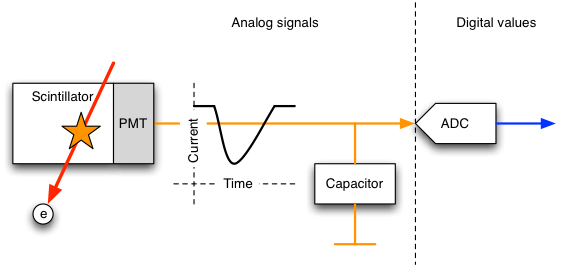Detectors
 The diagram to the left shows a type of detector called a scintillator. When an ionizing particle passes through a scintillator it causes the scintillator to emit light. The light is detected by a photomultiplier which generates an electrical pulse. A scintillator can tell the experimenter several things depending on how the analog signal is measured. The electrical signal is a pulse of charge. The total charge depends upon the energy of the particle. The charge is into a voltage
The diagram to the left shows a type of detector called a scintillator. When an ionizing particle passes through a scintillator it causes the scintillator to emit light. The light is detected by a photomultiplier which generates an electrical pulse. A scintillator can tell the experimenter several things depending on how the analog signal is measured. The electrical signal is a pulse of charge. The total charge depends upon the energy of the particle. The charge is into a voltage
Depending upon the property of the particle that the experimenter wants to measure



